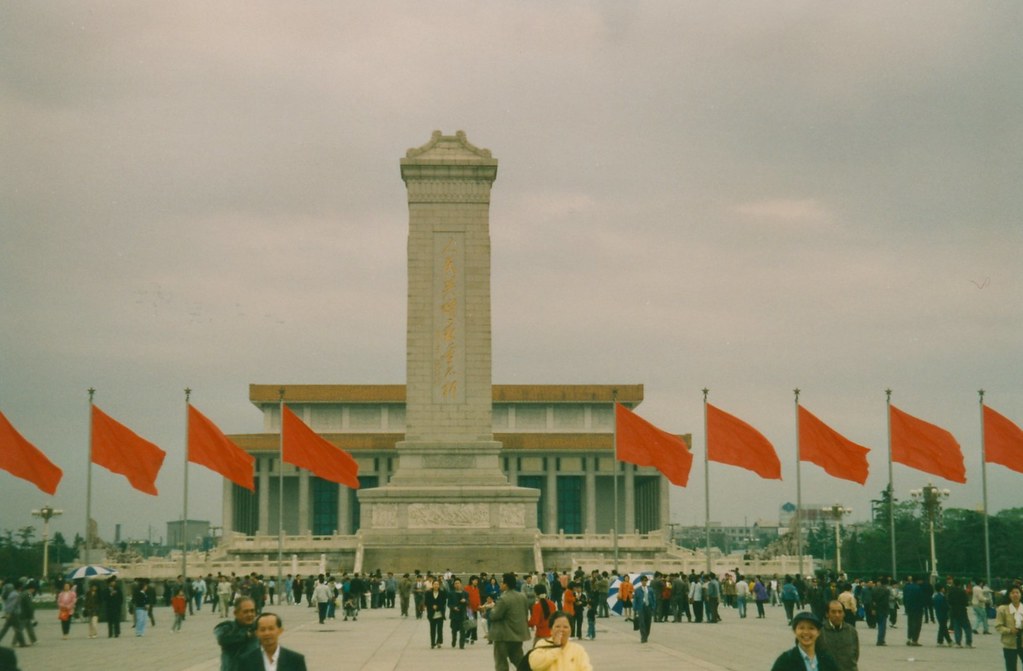30 years after Tiananmen protest, democracy leader beefs up efforts for justice

- Country:
- China
Veteran Hong Kong democracy campaigner and Baptist cleric Chu Yiu-ming were in his mid-40s when he joined demonstrators around Beijing's Tiananmen Square in 1989, just before a bloody crackdown that roiled China.
Thirty years later, the political landscape appears even bleaker to the Chu, who helped smuggle out dissidents after the bloodshed, and helped lead pro-democracy protests in 2014 that blocked major roads in Hong Kong for months. Under President Xi Jinping, Chinese authorities have clamped down hard on rights lawyers, activists, Muslim minority Uighurs in the far western region of Xinjiang and Chu's home city of Hong Kong.
"Regarding China's political situation, I feel even more pessimistic," the silver-haired Chu told Reuters while seated in a wooden pew in his Hong Kong church. "The students back then were opposing corruption … but now things are more serious than in 1989."
The June 4 events remain a taboo topic, censored by the government, which has never given an official account of the killings, released a death toll or investigated those responsibly. Witnesses and rights groups say hundreds, perhaps thousands, were killed and wounded.
In Hong Kong, where a gritty opposition has agitated for full democracy since the British colony reverted to Chinese rule in 1997, Chu is considered a more measured democratic voice. But this year, he was convicted on a public nuisance charge for helping to organise the "Umbrella Revolution" protests of 2014 and received a 16-month jail term, suspended because of his poor health.
In a speech from the dock, the Chu, 75, said that in this "last mile" of his life, he would continue to fight for justice. "Ours is an age of absurdity," he told the court. "Living in a society on the brink of authoritarianism and of arbitrary rule, let me be a brave bell toller, ringing, waking up sleepy souls."
OPERATION YELLOWBIRD
After the troops of the People's Liberation Army crushed the democracy movement in 1989, calling it a counter-revolutionary plot, more than a million outraged Hong Kong residents spilt into the streets in mass protests.
A small group of activists, businessmen and gangsters organised a covert effort, Operation Yellowbird, to smuggle hundreds of students and activists out of mainland China, sometimes using high-powered speedboats. About 400 dissidents escaped, passing through Hong Kong en route to Western nations such as Canada, France and the United States.
The Chu helped with the diplomatic negotiations, while British authorities allowed fugitives to stay in Hong Kong until they received asylum abroad. The Chu believes that even in the face of authoritarian power, there remains the hope for change and progress, as symbolised by Hong Kong's refusal to forget.
He has long attended the city's annual candlelight vigil for the victims of June 4, saying it helps preserve the "historical truth" of Tiananmen in the face of blanket Chinese censorship. "Many Chinese officials come to see me and ask me, 'Can't you stop holding the vigil?’. And I tell them, 'No'. Until the dictatorship apologises, this candlelight will continue to make their conscience uncomfortable."
(With inputs from agencies.)
ALSO READ
HRCP writes to Punjab CM, seeks attention to severe human rights violations in Pakistan
Gaza: Human Rights Council resolution urges arms embargo on Israel
Pakistan PM Sharif to meet Saudi crown prince on Saudi Arabia visit, says foreign ministry
UN human rights body calls for halt to weapons shipments to Israel as concerns about Gaza war mount
Pakistan's human rights body urges action to end decades-long pattern of enforced disappearances in Balochistan










